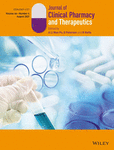Safety of dexmedetomidine for the control of agitation in critically ill traumatic brain injury patients: a descriptive study
Funding information
This study was supported by a summer student research grant from the Faculty of Pharmacy of the University of Montreal. No other external funding was used. David Williamson is supported by an FRQ-S research career grant.
Abstract
Background
Behavioural disturbances such as agitation are common following traumatic brain injury and can interfere with treatments, cause self-harm and delay rehabilitation. As there is a lack of evidence on the optimal approach to manage agitation in recovering TBI patients, various pharmacological agents are used including antipsychotics, anticonvulsants and sedative agents. Among sedatives, the safety and efficacy of dexmedetomidine to control agitation in traumatic brain injury patients is not well documented.
Objective
To describe the safety, use and efficacy of dexmedetomidine for the management of agitation following traumatic brain injury in the intensive care unit.
Methods
Medical records of all patients admitted to the intensive care unit of the Hôpital Sacré-Coeur de Montréal for a traumatic brain injury who received dexmedetomidine for agitation between 1 January 2017 and 31 December 2017 were reviewed. Patients who received dexmedetomidine for indications other than agitation were excluded. Data on dexmedetomidine prescription practices and safety were extracted. Frequency of agitation and concomitant psychoactive medication use was explored over a period starting two days prior to the initiation of dexmedetomidine to six days after or discontinuation, whichever came first.
Results
We identified 41 patients in whom dexmedetomidine was initiated. Dexmedetomidine was started on median ICU day 3 (25th-75th percentiles: 2–7) and had a median treatment duration of 3 days (25th-75th percentiles: 3–6) and a mean average rate of 0.62 mcg/kg/h (SD 0.25). Although hypotension (76%) and bradycardia (54%) were common, only one patient required intervention. The proportion of patients with at least one episode of agitation decreased from 100% on day 0, to 88%, 69% and 63% on days 1, 2 and 3 of dexmedetomidine, respectively. The decrease was statistically significant difference between days 0 and 2 as well as between days 0 and 3. Concomitant use of propofol and benzodiazepines also decreased over the course of dexmedetomidine treatment.
Conclusion
Dexmedetomidine use was safe and associated with a reduction in agitation in traumatic brain injury patients in the 96 hours following its initiation.
CONFLICT OF INTEREST
The authors have no conflicts of interest to declare.




